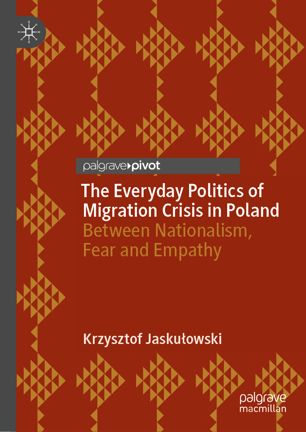

Most ebook files are in PDF format, so you can easily read them using various software such as Foxit Reader or directly on the Google Chrome browser.
Some ebook files are released by publishers in other formats such as .awz, .mobi, .epub, .fb2, etc. You may need to install specific software to read these formats on mobile/PC, such as Calibre.
Please read the tutorial at this link. https://ebooknice.com/page/post?id=faq
We offer FREE conversion to the popular formats you request; however, this may take some time. Therefore, right after payment, please email us, and we will try to provide the service as quickly as possible.
For some exceptional file formats or broken links (if any), please refrain from opening any disputes. Instead, email us first, and we will try to assist within a maximum of 6 hours.
EbookNice Team

Status:
Available5.0
10 reviewsThis book explores attitudes towards migrants and refugees from North Africa and the Middle East during the so-called migration crisis in 2015-2016 in Poland. Beginning with an examination of Polish government policy and the discursive construction of refugees in the media, politics and popular culture, it argues that they identified refugees with Muslims, who were deemed to pose a threat to the Polish nation. This analysis establishes the Islamophobic public discourse which is shown to be variously reproduced, negotiated and contested in the nuanced study of Polish attitudes which follows. Drawing on original qualitative research and constructivist theory, the book examines differing stances towards refugees in the context of the lay understanding of the Polish nation and its boundaries. In doing so it demonstrates the influence of discourses that draw on an exclusionary concept of national identity and the potential for them to be mobilised against immigrants. This timely, theory-based case study will provide a valuable resource for students and scholars of Central and Eastern European politics, nationalism, race, migration and refugee studies.